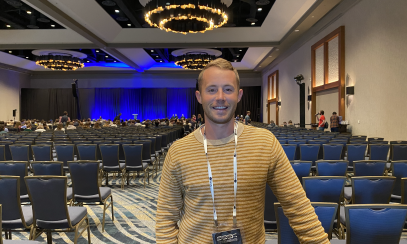
Don’t Let Social Media Distract You
“We make body image issues worse for one in three teen girls.” This statement, taken from internal Facebook research about its service Instagram that was recently leaked by a former employee, highlights the concerns that so many have about social media. It’s common at this point to hear stories about how Facebook, Twitter, Instagram, TikTok, and other sites contribute to all manner of social ills, including bullying, racism, disinformation, and self-harm.
What has struck many in these latest revelations is not the idea that social media can exacerbate existing problems; many people already assumed this. It was that this insight comes from Facebook’s own internal research.
The whistleblower, Frances Haugen, went on to testify before Congress that when Facebook is faced with a choice between making changes that will improve the lives of its users or maximizing growth and profit, it consistently chooses growth and profit. And it’s important to emphasize that it’s a choice: Haugen highlights that this choice is reflected in Facebook’s algorithms, which are intentionally designed to present users with content that is more likely to generate engagement. And while Facebook claims it is not trying to promote content that is inflammatory, inaccurate, or extreme, it also knows that these are among the things that best promote engagement.
Of course, it’s common to think of social media as a tool that I control: I choose to create an account, I choose to look at those notifications, I choose to interact with the content that I see. Yet this perception hides the way that tools and technologies push us to form particular habits.
The notifications encourage us to check for them, to respond to them, to engage with the app. The news feeds present us content that it expects we will want to see, and it nudges along a desire to return again and again. As we continue to make these small choices over time, we develop habits.
Thus these recent revelations about the potential negative effects of Instagram help to highlight an easily overlooked concern about social media and technology: the role of design. Social media networks are not neutral forums in which ideas are freely exchanged, but are platforms that encourage users to develop particular habits that are ultimately helpful for the platform.
Through notifications and other nudges, the platforms reward and reinforce our participation in them. Through algorithmic decisions about what content is presented to us, the platforms try to assess our desires and interests and then reinforce those in ways that keep us on the app. You liked this post? Well, have you considered watching this video?
To put it another way, social media is part and parcel of a formation system that shapes our habits, attitudes, and desires. It is a pervasive aspect of how contemporary people come to be virtuous, or vicious, people. They shape how we see ourselves, each other, and the world.
As an example, one of the interesting points from the Wall Street Journal’s reporting on this highlights the issue of social comparison, “when people assess their own value in relation to the attractiveness, wealth, and success of others.” It notes that Instagram’s focus on bodies and lifestyles makes the problem of social comparison worse. The design and culture of Instagram encourages users to curate, edit, even Photoshop their lives into perfection, which in turn puts pressure on other users to do the same. The app can create a distorted filter on reality.
The question that emerges from this is what should a person do? A common and straightforward suggestion people often have is to sign off and quit social media entirely, and this strategy surely works for some. But for many, social media can be an avenue to building and sustaining relationships or to encountering new perspectives. It is perhaps better, but also harder, to focus on cultivating virtues that can enable us to live better lives, both on and off.
To start, most essential is developing better practices of attention. The need for this is most obvious when we recall the many times we might turn to our phones, whether we are in the presence of other people or are briefly bored while waiting in line.
Changing where and on what to place our attention requires intention, but over time we can become better at not letting distractions swallow our attention. Making a point to turn devices off (or at least put them in airplane mode) when eating with others, going to Mass, or needing some quiet time is a deliberate and easy act of attention-focusing.
Along with this, it is wise also to pay attention to one’s interior responses to what one sees and thinks while engaging social media. Are these interactions bringing us joy, helping us to connect, or moving us to prayer? Or are they distorting our perceptions of ourselves, encouraging us to see ourselves as something other than the person made in the image and likeness of God who is worthy of love dignity? Is it anesthetizing us, distracting us from what is important in our lives? As we cultivate better practices of attention to others, we must also develop better practices of attention to the movement of our own hearts.
Social media is a window into the reality of the modern world, and as that window, it shows us many things, both wondrous and woeful. If we pay attention to that world, and pay attention to how this window affects us, we are better able to live in the world of social media without being of that world.
Dr. Stephen Okey is an associate professor of theology at Saint Leo University. He is the author of A Theology of Conversation: An Introduction to David Tracy and is currently working on a book on public theology in a digital age.



